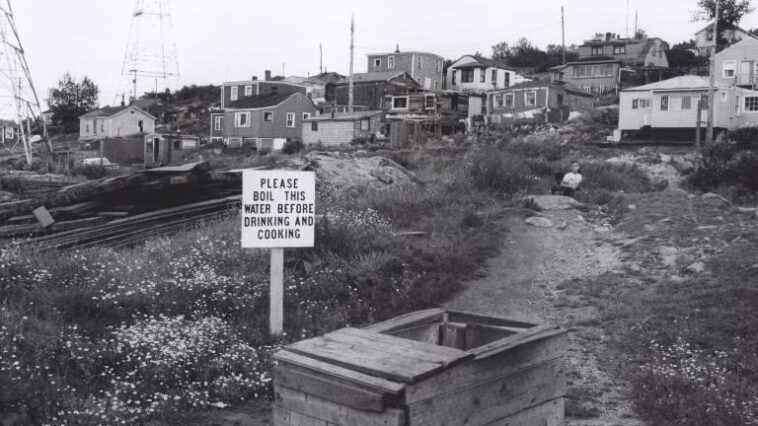Release:
The Canadian Commission for UNESCO and Africville Heritage Trust are pleased to announce that Africville has been designated as Canada’s first UNESCO Place of History and Memory linked to Enslavement and the Slave Trade. Africville is a historic site located in Halifax, Nova Scotia. On October 9th at the UNESCO headquarters in Paris, Gabriela Ramos, UNESCO’s Assistant Director-General for the Social and Human Sciences, announced this designation together with other Places of History and Memory.
2024 marks the 30th anniversary of the UNESCO Routes of Enslaved Peoples Programme. Since 1994, it has co-produced knowledge, developed scientific networks, and supported memorial initiatives on the theme of slavery, its abolition, and the resistance it generated. It has contributed to building a better understanding of the consequences of slavery on contemporary societies, linking these to current global movements against racism and discrimination.
Under this programme, a new UNESCO designation was established to recognize Places of History and Memory linked to Enslavement and the Slave Trade.
The documented presence of Africans in Mi’kma’ki, or what is presently called Nova Scotia, dates back to the 1600s. The number of persons of African descent in Nova Scotia increased significantly following the American Revolution of 1775. Slavery was still legal in the British colonies at the time, and many diasporic Africans arrived in Nova Scotia as servants and slaves to White Loyalists. Other Black Loyalists arrived as free/d persons, settling in places such as Birchtown, Annapolis, Digby, and Tracadie.
Africville was an enclave of sanctuary and cultural expression established by diasporic Africans in a subsequent wave of migration following the American-British War of 1812 that saw approximately 2,000 diasporic Africans arrive in the Maritimes, many of them formerly enslaved people. One of the areas where the Black population of Halifax clustered was the Campbell Road settlement, which became known as Africville. Over the years Africville’s population grew, becoming a place of refuge for its working class residents, with the Seaview United Baptist Church serving as the heart of the community. However, as the city of Halifax increased its industrial and economic growth, the Africville community was unjustly destroyed, and coercive tactics were deployed to dispossess residents of their houses and land.
“The history of Africville demonstrates how the legacy of the transatlantic slave trade lives on, and paved the way for the anti-Black racism experienced by Africville residents. Although they paid city taxes, Africville residents never got paved roads, running water, or sewers, and the ways in which they were forcefully displaced were dehumanizing. Their story must become known by all Canadians and I hope this UNESCO designation will be a catalyst to increased support for the Africville Heritage Trust and their work to share this important history.” – Yves-Gérard Méhou-Loko, Secretary General, Canadian Commission for UNESCO
“In a span of less than 120 years, the people of Africville went from being self-sustaining land and homeowners to veritable wards of a paternalistic city that continuously robbed them of their human rights and dignities. Yet the intangible cultural heritage that is the heart of Africville could not be destroyed. At the Africville Museum, a replica of the Seaview United Baptist Church destroyed in the razing of Africville, we continue to gather as a community and ensure that the experiences and contributions of Canadians of African descent are made part of our collective memory.” – Percy Paris, Chair, Africville Heritage Trust
About the Africville Heritage Trust
The Africville Heritage Trust (AHT) is a not-for-profit organization managed by a volunteer board that is primarily made up of members of the Africville community. The Africville Museum operated by the Africville Heritage Trust is a space for all to learn about early African settlement in Nova Scotia and the story of Africville. The exhibition includes audio and visual archival footage in which the last residents of Africville tell the stories of their lives and experience of displacement, and visitors can hear stories of Africville from guided walking tours by staff, Africville residents and their descendants.
About the Canadian Commission for UNESCO
The Canadian Commission for UNESCO (CCUNESCO) serves as a bridge between Canadians and the vital work of UNESCO—the United Nations Educational, Scientific and Cultural Organization. Through its networks and partners, the Commission promotes UNESCO’s values, priorities and programs in Canada and brings the voices of Canadian experts to the international stage. Its activities are guided by the United Nations’ 2030 Agenda for Sustainable Development and other UNESCO priorities. CCUNESCO operates under the authority of the Canada Council for the Arts.

